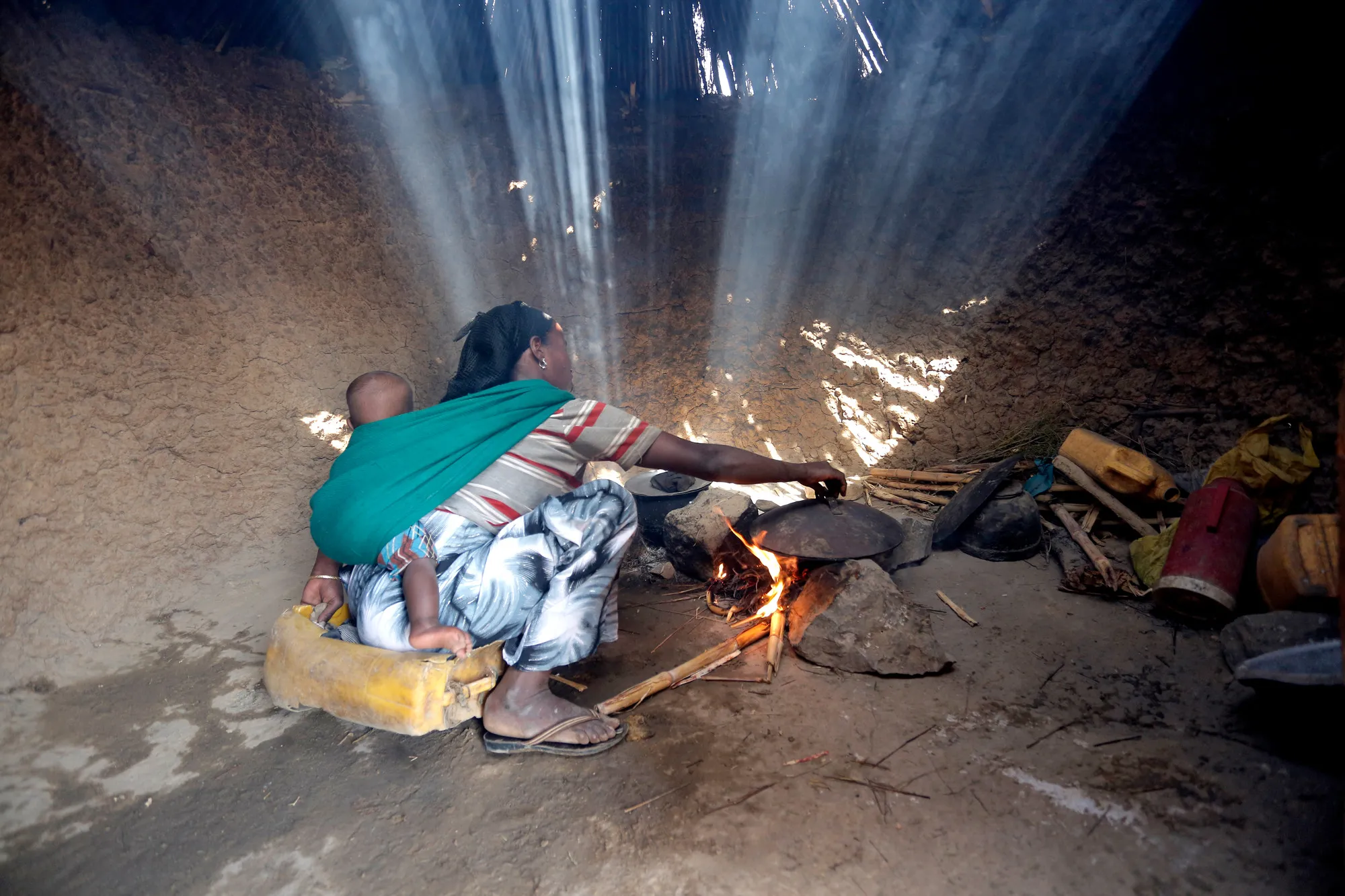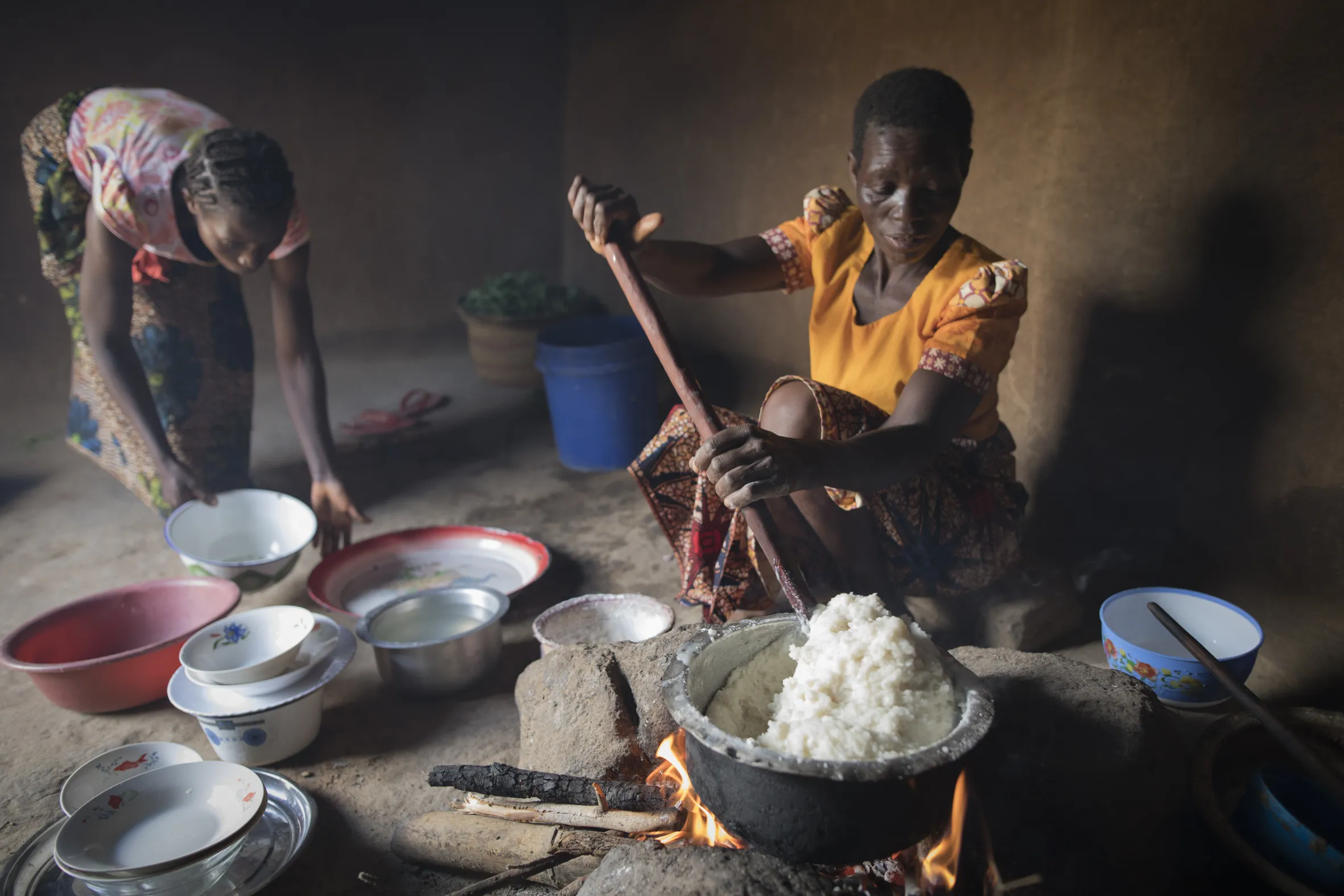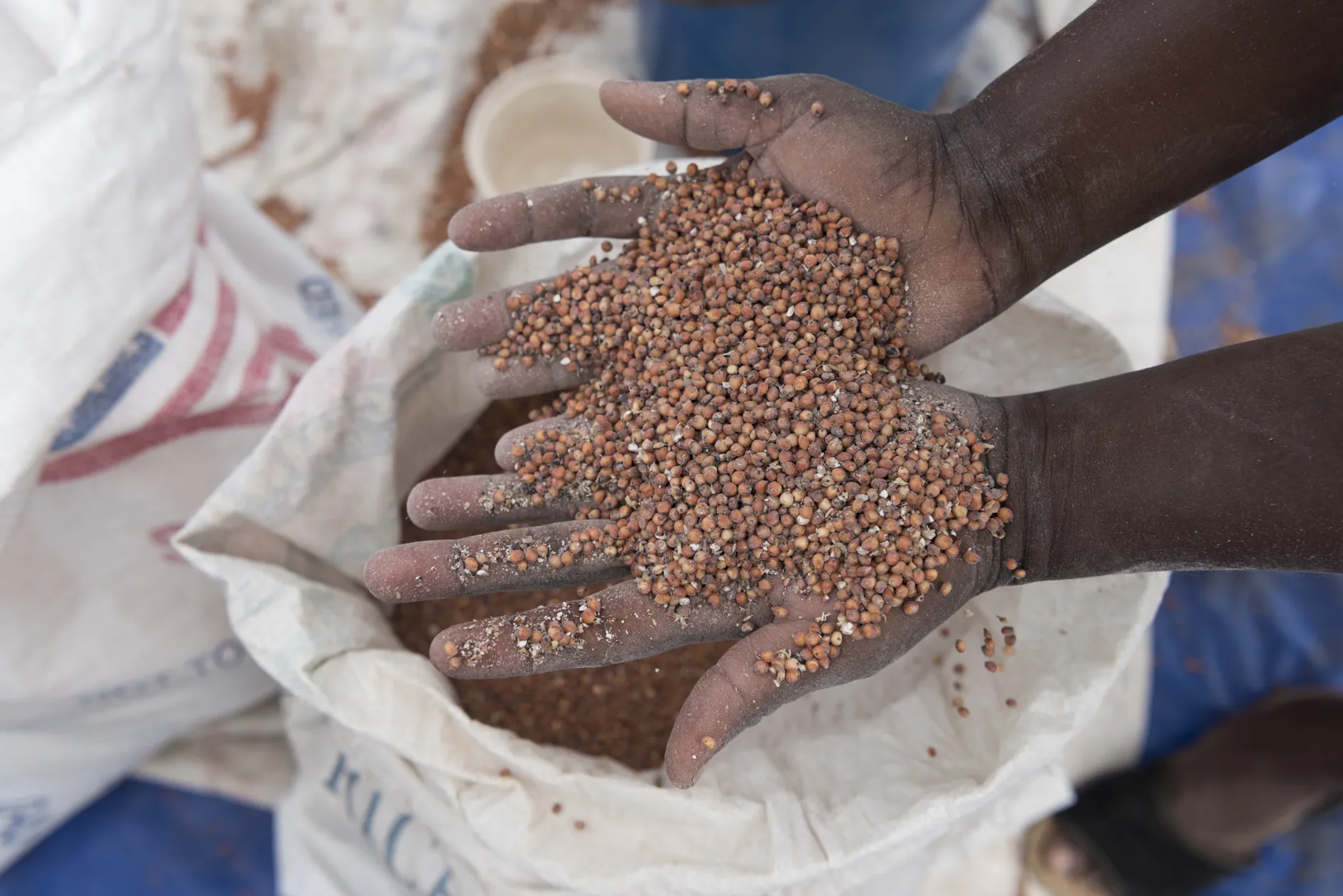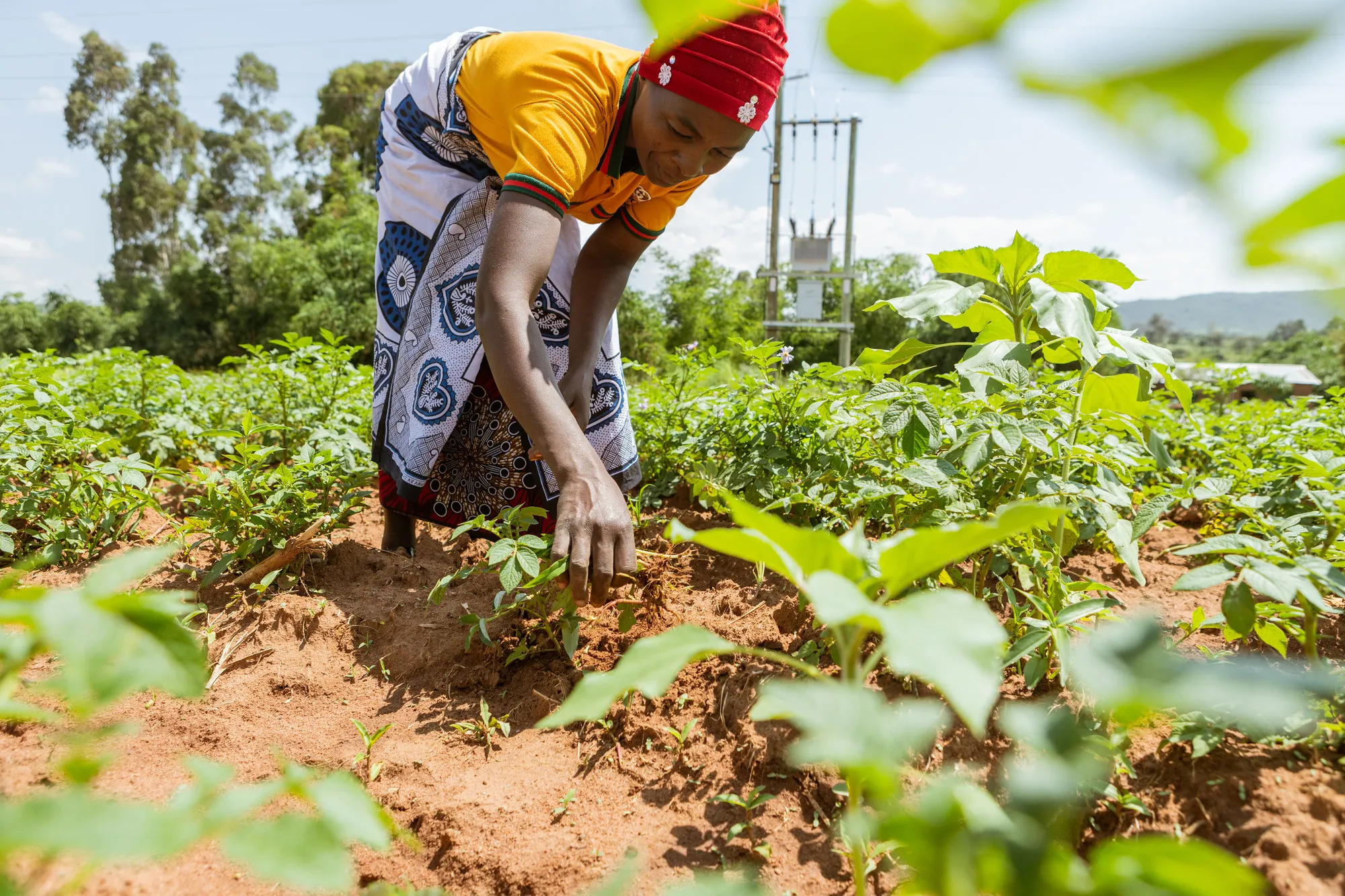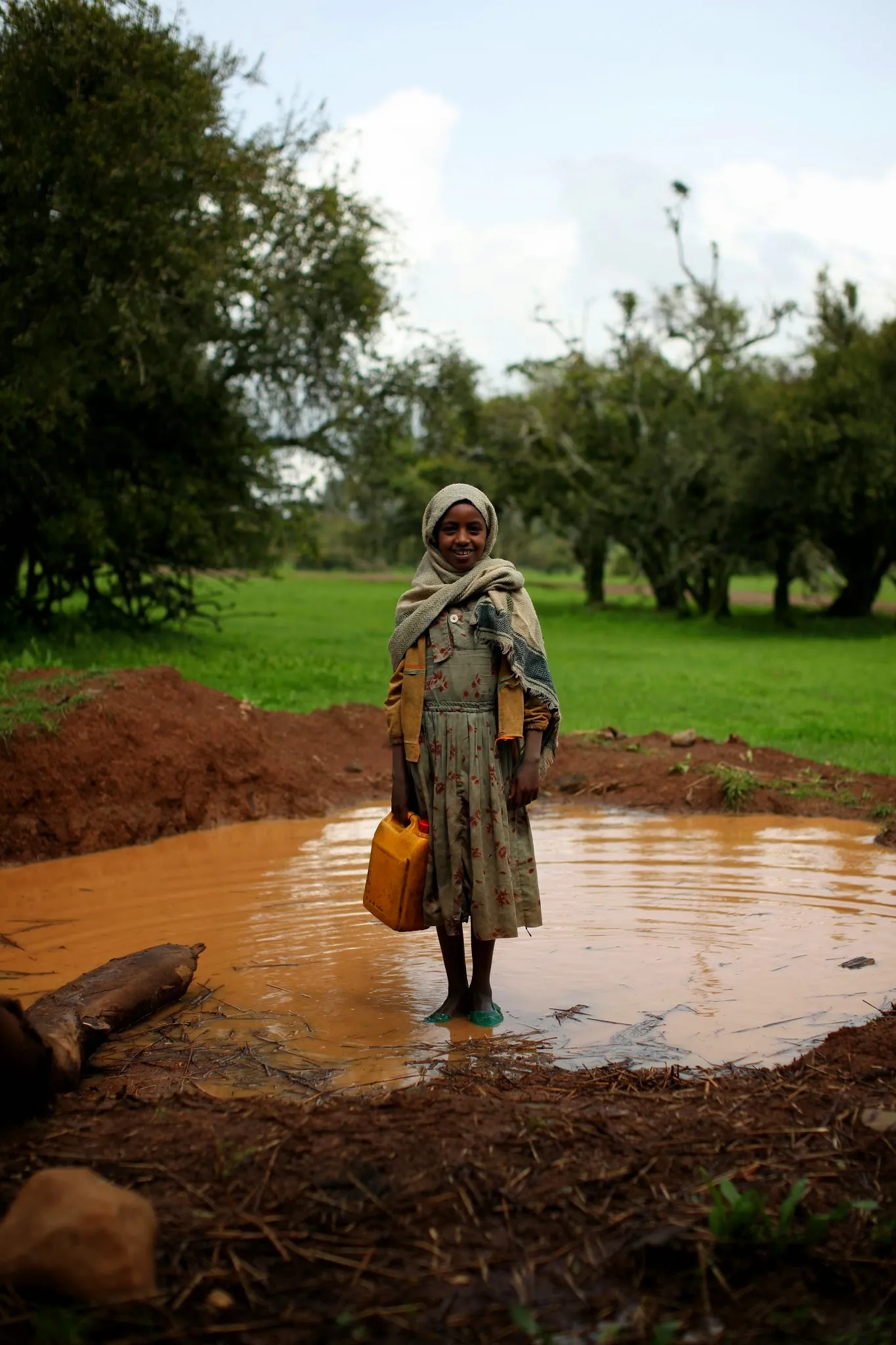After decades of progress, global hunger is on the rise, and CARE’s research has shown that inequality for women and girls and food insecurity are linked. 84.2 million more women were hungry than men in 2022, and despite women being responsible for 90% of preparing and buying food, they are eating last and least in times of crisis.
If women farmers had the same access to resources as men, they could increase yields on their farms by 20 to 30 percent, potentially reducing the number of hungry people in the world by up to 150 million.
If the Farm Bill doesn’t take the inequalities faced by women and girls into account, then we won’t be able to solve the hunger crisis. That’s why CARE and its advocates work to ensure the needs of women and girls are elevated in Farm Bill advocacy, including ensuring that women-led businesses are prioritized in program design.
For example, the McGovern-Dole Food for Education program provides school meals to children in low-income countries, which is a powerful incentive for parents to send girls to school and ensure they receive an education and other opportunities.
5. What can I do to help the Farm Bill?

